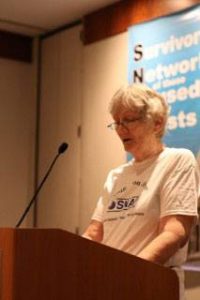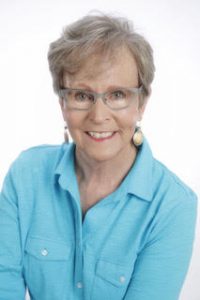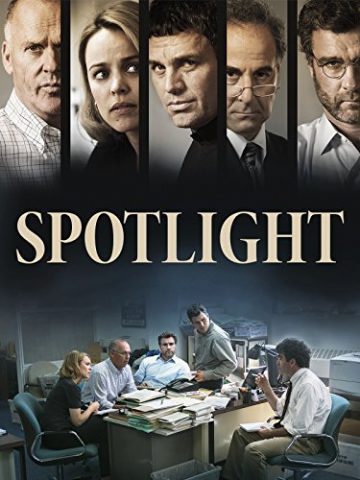In this episode of the Religious Feminism interview series, Mary Dispenza and Judy Larson, two leaders of Survivors Network of those Abused by Priests (SNAP), the activist organization made famous by the Academy Award-winning movie, Spotlight, discuss best practices to stop sexual abuse by ecclesiastical leaders and support sexual assault survivors. You can find other episodes of the Religious Feminism Podcast here at the Exponent website: https://exponentii.org/blog_tag/religious-feminism-podcast/
Listen to the podcast:
Read the transcript:
00:00:08
April Young-Bennett
Welcome to the Religious Feminism Podcast. I’m your host, April Young-Bennett, and I am excited today to have two representatives of SNAP, that’s the Survivors Network of those Abused by Priests, with me.
Some of you might remember this group. They are the group that was featured in the movie Spotlight that was working so hard to stop Catholic priests from abusing children.
I think this is an extremely timely topic right now with the Me Too movement we have more and more people coming forward to talk about their abuse and to address this problem that affects basically every aspect of society, including our churches.
In my own religious community, I’m a Mormon Feminist. We recently had an incident come to light where we learned about a mission president, an older man in his 50s who had authority over many younger people, who had sexually abused younger missionaries in his care. So this is something that is very timely for us, but I think it’s also timely worldwide. As people have become emboldened by the Me Too movement, we see more and more people coming forward.
And there are activists from my own church and from many other churches that are looking for ways to make our church settings more safe from sexual abuse, especially by those who are in priesthood authority or other ecclesiastical authority.
So I will let my guests go ahead and introduce themselves.
00:01:42
Mary Dispenza
I’m Mary Dispenza of Northwest leaders for SNAP, Survivors Network of those Abused by Priests, activist and an advocate for equal rights and the protection of children, and I’m also a former nun for 15 years and so the topic interests me from that standpoint also, and a once-upon-a-time Catholic.
SNAP is an open, inclusive organization, inviting and welcoming persons of all religious denominations who are looking for support and healing. So it doesn’t matter what faith you’re from or not from. Please come. You’ll find friends. You’ll find stories. You’ll find people like you and know you’re not alone. Please go to snapnetwork.org. There is great material there and there’s a summer conference coming up sponsored by SNAP and it’s July 6th through 8th in Chicago.
SNAP is celebrating its 30th anniversary. Barbara Blaine founded SNAP in 1988 and her story is that she was abused as an eighth grader in a Catholic school and years later, when she reported it to the Archbishop of of Toledo, she got very little response and that caused her to realize that almost survivors. There would probably be a lot of support and help, so she worked really hard and she brought a small group together eventually, maybe two dozen. By 1991, she had a very small group of persons gathered and then it and then they had their first meeting in the Holiday Inn in Chicago and that kind of makes me smile, and she also was on Oprah at that time. Oprah gave her about 5 seconds to stand up and announce this meeting. And so with that was the beginning of SNAP now.
The membership has gone to 25,000 and we have 31 support groups in in 31 different states. And what caused it to really surge, so to speak, was the Boston Globe ran about 850 stories about pedophile priests and the movie Spotlight was the story of that and it was SNAP that really provided a lot of information and kind of the kernel for that movie to unfold.
Its mission is to protect survivors by exposing predators and institutions that harbor them and to seek justice and to offer hope and healing to survivors. We don’t counsel and we’re not therapists, but through sharing of our stories, it also allows us to share our stories with one another and to share our own healing story, which gives the pieces and ways that we each have found to move us to heal.
Another way to help survivors that SNAP has is we have a website, it’s called snapnetwork.org, and there a survivor can find where the networking groups are or if there are any in their state. They can read a daily story that’s just come out in the media about survivors. They can read stories of other survivors. They can find resources. Positive stories in the media and advocacy for survivors helps other survivors to begin to realize, well, possibly there is a way for me to seek justice or to speak out, and those are the stories that we keep trying to put forward.
The position we take of power in the media over abuse and confronting it, I think also a way to say survivors matter.
00:06:30
April Young-Bennett
We also have with us today, Judy Larson, who is the SNAP leader for Utah. She was raised Catholic and converted to Mormonism at age 26, and so she has knowledge of this issue in both religions.
00:06:44
Judy Larson
One thing I did was testify on behalf of statute of limitations, reform and June 2016, Utah extended the civil statute of limitations for childhood sexual victim survivors to their 53rd birthday which is one of the most beneficial and longest window for adults who were victimized in Utah as children.
I’ve also been to press conferences in June of 2016, there was a press conference regarding Native American victims of sexual assault by the foster parents in the Mormon Indian Placement Program and I was there as a support person. And then just this past week, I was at the press conference for McKenna Denson, the missionary who was raped at the Missionary Training Center, I also spoke with the press and I think one of the other things we can do is inform the public about what they need to do when someone discloses to them to let them know that they’re believed that it’s not their fault. That it’s their journey. So don’t give them advice about going to police or how they should forgive the perpetrator. Let them take their own journey, but let them know you’re there as a support person.
00:08:32
April Young-Bennett
An important thing to remember about statutes of limitations is that lots of sexual abuse survivors aren’t able to come forward until years later. Often they are abused when they are children or very young, and it’s not until many years later, after they process these events, that they feel ready to come forward and talk about the abuse. And sometimes people think well at this point it doesn’t matter because they’re older, they’re away from that person. They’re safe now. They’re a grown up. They don’t need to prosecute anymore at this point. But that’s not really the case, because often these sexual predators have moved on to abusing new children, new, younger people. And the only way to protect them is for those people who have been through that healing process who are now ready to come forward to have the opportunity to do so and to not be stopped by a statute of limitations.
00:09:31
Mary Dispenza
Right in. In my case I was 52 when I finally allowed the memories of my sexual abuse at age 7 to surface and up until that time.
I wrote a book. I’monly bringing that up because it’s called Split. And that’s exactly what I did. I left little Mary. I split and she was went away for a very, very long time. And that’s how it is with a lot of sexual abuse and other traumatic experiences. Also, they’re just too hard to carry. And it takes years and years for them to come forward and for us to be healed to a point that we can acknowledge face and move on.
And you’re right, the law is made for the perpetrators. It protects them. It allows them to go on and do further damage. It is not in the best interest of survivors and there are facts and data that say survivors don’t lie. I believe it says something like 96 to 98% of survivors of sexual childhood abuse tell the truth.
And also just as long with this the Church—the Catholic Church, by the way, I don’t know about other churches—spends millions of dollars paying lobbyists to fight the Statutes of Limitations reform it protects the church from further scrutiny, to keep the statutes of limitations and in place.
00:11:28
April Young-Bennett
Tell us about some of the best practices for preventing abuse in ecclesiastical settings.
00:11:34
Mary Dispenza
Insisting that church groups develop and provide training for their volunteers and for teachers and others connected to their church communities about things to watch for and what they might do and to enforce policies. If they have them, they should enforce them and one of them might be never having an adult meet alone with a child, that another person be present and more, to encourage them not to encourage the survivor to go to the church for help. It’s sad to say, but those of us in SNAP have learned that that doesn’t always prove very helpful. First go to the police or both a therapist and the police and let them do the investigating. Don’t hand that your story over to the church because it isn’t always the place to get the outcome that you need healing injustice.
I think another thing that you mentioned was really important about the statutes of limitations. It’s happening here in Washington. We’re working very hard to undo the statutes of limitations. So another thing we might do as survivors and activists would be to testify. And I think you mentioned that you did. I have testified. And we got a small change, but maybe it’s not so small, but anyone who’s been sexually abused under the age of 12 has no restrictions on when they come forward. And of course, those older than that have up to three years after they come to awareness, so it’s a small step, but that’s worth working for and doing that well, because that’s what prevents a lot of survivors from the just getting the Justice and healing that they need.
00:14:11
Judy Larson
I agree Mary, small steps are important.
00:14:15
Mary Dispenza
Something that I’m proud of, this man has done. I consider it a great big giant step. They joined together with the Center for Constitutional Rights and actually waged a formal complaint to the International Criminal Court in Hague. And they also did the same and United Nations on the rights of the child and torture. It was the first time ever in the history of the Vatican that anyone ever had to appear before the court and they were asked for different reports that are due, I think next month. And I’m not positive about the timing of that and they were gound guilty. This was two years ago. They were found guilty of crimes of torture and abuse to children, and they found that this was not just a small problem, but it was a systemic problem. And throughout the world. And that that has always inspired me to feel that SNAP was able to take a big step like that and that is not over yet, so we have yet to see if the Vatican representatives produce the information that they were asked to do or not and what will happen.
00:15:51
April Young-Bennett
Do you have any advice for activists that might be working to prevent or stop abuse in their own religious communities?
00:16:00
Mary Dispenza
Yes, I I think #1 anyone who is an activist needs to take care of themselves seriously and fill yourself up in simple ways like taking a walk, taking a break, whatever brings you some rest, enjoy and another thought is to network with other advocates or leaders or volunteers, build some friendships. And if you have a problem or concern, you don’t quite know what to do with it or how to respond to somebody, call one of your friends or your colleagues and ask them what they might do.
And what I what I do? Because I like to write. Almost every day I get the newspaper out and I just quickly go through it and if there’s an article that touches my heart that has anything to do with abuse or the church, I go right to my computer. I sit down and I write a dear editor. And sometimes they’re taken and sometimes not. And I’ve had the good fortune of getting off the edges into our Seattle Times. So I will do that when I’m really, really passionate about something. So what I would say is if you like to write and something really touches your heart. Then go right about it. If it’s the statutes of limitations and you see an article, then go to your computer, sit down and do your 250 words and kiss it and send it on its way. It may make a difference. And readership of many newspapers are in, like the 8 thousands, 4 thousands of five thousands. That’s a lot of people to get your word out to in your message.
00:18:13
Judy Larson
Here in Utah, we have a lot of activism. People can volunteer at the Rape Recovery Center, the Utah Coalition Against Sexual Assault. UCASA has training programs for advocates. They will be holding a 5K race to raise funds the 1st Saturday in May, so there are a lot of opportunities for members of the public to get involved if this is something they feel strongly about. Last on March 30th, 2000, People march to protect LDS children. Asking the LDS Church to stop the practice of one-on-one so-called worthiness interviews with minor children and one adult male behind closed doors and also asking that they stop asking sexually explicit questions. So there there are lots of opportunities.
00:19:39
April Young-Bennett
One thing that’s come up again and again as we’ve done this podcast is regardless of which religion it is, religions are institutions that institutions protect themselves. And sometimes, when institutions are protecting themselves, they’re doing so to the detriment of the people that are part of those institutions.
00:19:58
Mary Dispenza
Churches believe they can please themselves. They believe that. They can do internal investigations and be protected and just that is ridiculous.It makes me angry, and the Catholic Church has its own internal process and so too with the military, and we cannot be objectives in relationship to things we are a part of just doesn’t make sense.
00:20:31
April Young-Bennett
That is true in my faith too. I’m Mormon and we have our own church discipline system. And some people believe that if they just go to their ecclesiastical leader and report there that it’ll be taken care of internally, when in fact this system is a system in which only men are even part of it. Men decide if a trial is even going to happen. Only men are allowed to staff these trials. It’s very traumatizing for a woman who is a survivor to have to testify before these all-male panels. And the risk is pretty high that they won’t be believed because there aren’t any other women there and the people they’re speaking to are the colleagues of whoever abused them, especially if that person was an ecclesiastical leader. So it’s definitely not the best way to get justice.
00:21:20
Mary Dispenza
Absolutely. I would think we would all rise up and say no more. That does not make sense. Yes, there are only 30-some diocese that have released the names of identified clergy abuses. And only one of those has released the names of lay abusers and their hidden predators who pose a risk to all children, not just Catholic children, has been instrumental in getting those 30 diocese to release their names. Like, it’s like clergy abuses. But that’s only 30 diocese of how many of the whole United States. In the United States, known predators are sent to other countries where they continue to be priests and continue to abuse. And then statutes of limitations, we’ve made gains, but there’s just so much more to do. So those were connected to the progress now has made. But then you have to always qualify it always with yes and.
But it’s as we said earlier a step at a time we can’t stop. We can’t stop at the just keep going a step at a time.
00:22:40
April Young-Bennett
Another question I have is lots of us that are working on this in our own congregations, our own churches. We’re not as far along as you are. Oprah doesn’t know us. We haven’t had an Academy award-winning movie made about us. We don’t have as much publicity as you do. Yet. What do you recommend for us?
00:22:57
Mary Dispenza
A story. Give us a story. Give the media story. No one likes to be exposed. That’s SNAP’s strength is exposing, we say. Expose the truth. There is truth in telling the story, so I would say start telling those stories and it’s so hard, especially what I know about the Mormon Church is there’s consequences. People are punished, people are taking before a court or tribunal, whatever it might be. So who wants to do that? So building up some kind of a network of women and or men together, where there’s power in numbers.
So as you can build a network that says no more, no more of this, and begins to put that forward in the meeting or in whatever ways possible that that’s one thing I think you can do and I believe that’s what SNAP’s started doing. Way, way, way back they started finding and identifying their own predators. They brought them out into the open in whatever ways they could, and they started to hold them accountable. They made noise. They ended their silence. And I think that’s another thing that you can do. Break the silence, stop the secrets, tell the truth and in one person might be able to do that, but you’re not alone.
00:24:35
Judy Larson
Stop the silence. Silence and secrecy are the predator’s tool.
Links to Connect and Learn More:
Survivors Network of those Abused by Priests (SNAP)

2018 SNAP Conference in Chicago
Split: A Child, a Priest, and the Catholic Church by Mary Dispenza

Additional Resources Discussed in the Podcast:
 #MormonMeToo series at the Exponent
#MormonMeToo series at the Exponent







3 Responses
That was excellent, April. Thank you so much. Mary
What an informative and helpful and validating discussion. As the mother of a teen daughter who was sexually assaulted by a fellow church member/Melchizedek priesthood holder, I am especially grateful for the counsel given in this interview to not pressure victims to give statements or report to police. When we initially reported what happened, my daughter was too timid to go to church leaders about it and my husband wanted no part in it, so *I* had to be her voice. This made church leaders suspicious. They kept saying, “IF this is true, then why don’t you go to the police?” I didn’t go to the police because I didn’t have enough evidence of a crime; I just wanted the church leaders to keep him out of the Young Women’s room, where he was lurking each week and becoming what my husband called “too handsy with the YW” (I called it sexual assault because he kept “accidentally” touching their private parts). But they refused to even consider speaking with him until I produced a police report as evidence of sexual assault. I was so enraged and my child so traumatized that I instead looked for a job out of state and moved my entire family elsewhere. This man has since married a sweet single mother with young daughters and is still freely roaming the YW room. God help them all, I tried my best.
Also, I really appreciate the counsel to all churches to unite together and tell our stories. This site is the only place where I feel like I can even talk about what happened to us. The only safe space. When I moved to my new branch, I shared what happened at my previous branch with church leaders (in a private interview, when asking for “two deep leadership”) and you want to know the result? I was never, ever asked to speak in church. My husband has spoken in sacrament meeting twice, but I am being ignored. So I don’t feel safe talking about this anywhere or with anybody now. I have completely withdrawn from the local church. Thank you for creating a place where I feel safe talking with church members online! 🙂
Thank you for listening! And I am so sorry about how your local leaders handled the situation.